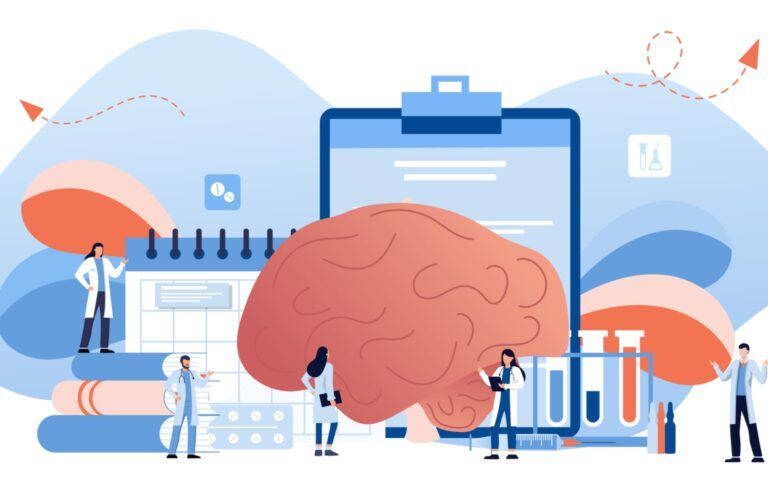Car accidents can be traumatic, both physically and mentally, and handling the aftermath of these types of accidents can be costly. It’s essential to care for yourself during this time, especially if your body’s experienced a lot of trauma, and one of the best ways to care for yourself is by seeing your neurologist. Neurologists not only treat nervous system disorders but can also treat patients who’ve received head injuries from traumatic car accidents. Even if you don’t experience any symptoms, your neurologist can check your head for damage to your neurological system and injuries that can have long-lasting consequences.
How Car Accidents Impact the Neurological System
In 2014, at least 2.87 million people suffered from traumatic brain injuries, leading to ER visits, hospitalizations, and death. When sudden trauma causes internal damage to the brain, there are many symptoms that could arise, causing impairment to neural function, such as alteration of consciousness, disturbance of vision, and poor equilibrium due to impact to the brain stem. Treating brain injuries takes a considerable amount of understanding about how the brain functions and how brain injuries can impact various aspects of the body overall.
In many ways, these injuries can either be temporary or permanent depending on the damage, and the severity of these injuries is defined by the injury’s characteristics, including:
- Physical Symptoms: Headaches, dizziness, balance problems, noise and light sensitivity, and fatigue are all common physical symptoms of traumatic brain injuries and concussions.
- Emotional Symptoms: Irritability, nervousness, sadness, and emotional labile to mood swings often result from these types of injuries and can be difficult to notice at first glance.
- Cognitive Symptoms: Poor memory, feeling mentally foggy, and poor sense of concentration can also result from traumatic brain injuries associated with car accidents.
All of these symptoms can occur from mild to severe, and aspects of car accidents such as whiplash can impact the brain severely because the brain’s delicate consistency can make it easy for the internal organs to become damaged, even if there is no open cut or wound preceding the injury. In-car accidents, the rotational forces involved in the impact can cause dynamic responses from the body, causing strains on areas of the skull, brain stem, and neck muscles that can lead to irreversible damage if not treated by a neurologist.
But what are the long-term consequences of these traumatic brain injuries? Studies have shown that any overall motion of the head following impact can result in a brain injury within a millisecond following that impact. According to this study, about 5 million people within the United States alone have and live with disabilities associated with traumatic brain injuries. Overall, these sudden injuries can lead to significant functional impairments and structural alterations to the brain itself, causing:
- Sleep Disturbances: Even after mild injuries, sleep disturbances are common among those with traumatic injuries. Sleep apnea, narcolepsy, parasomnia, and periodic limb movement disorder can occur in more severe cases of trauma. These sleep disturbances can contribute to depression, anxiety, and pain after the effects of the traumatic accident.
- Impaired Movement: In moderate and severe cases of traumatic brain injuries, prefrontal lesions to the brain can lead to a reduced neuronal input to the motor areas of the body and thus impact movement throughout the legs and arms.
- Cognitive Dysfunction: When it comes to cognitive impairments, they’re often a large source of morbidity for patients, where disturbances in attention, memory, and executive function are most common among all levels of traumatic brain injuries.
- Neurodegenerative Diseases: In rarer cases, neurodegeneration can lead to dementia and other forms of psychiatric impairment, and these types of diseases are often progressive over time due to the extent of the damage and their quantified neuronal loss.
All of these issues can arise from traumatic car accidents, especially if the head experiences whiplash or some form of concussion during the accident. However, it can be easy to ignore or avoid visiting a neurologist, especially if you don’t experience any symptoms after the incident. Seeing a neurologist will be able to help confirm any injuries or neurological issues that may be present and help assure that your brain and nervous system are healthy.
What Can A Neurologist Do For Your TBI?
Visiting a neurologist will allow you to get a proper diagnosis after an accident and help prevent or treat any potential long-term disorders or diseases that result from your injury. Your neurologist will diagnose and check your brain through a series of neurological tests, such as MRI scans, to test your vision, hearing, reflexes, and balance. Follow-up appointments will also be scheduled in advance to check for delayed symptoms within the first few weeks.
Your neurologists will not only discuss immediate pain management techniques to help your recovery from your accident but will also plan our long-term treatment plans for pain management and rehabilitation, including physical therapy, medication, and other methods to supplement your care. Seeing a neurologist will allow you to prevent and manage conditions ahead of time and help assess the extent of your injuries to make sure you are as healthy as possible.
Treatments for traumatic brain injuries are not a one size fits all method, as your symptoms, pain levels, and sources of your pain will all determine what kind of treatment you’ll receive. Personalized treatment plans are the best ways to address these problems, as neurologists are specially trained in areas of the brain, spine, and nervous system to diagnose conditions such as migraines, Parkinson’s disease, and epilepsy.
If you wish to learn more about how neurologists handle traumatic brain injuries, then contacting your local neurologist and scheduling an appointment will be the best way to learn more information. If you’re experiencing any signs of a traumatic brain injury, including numbness, foggy memory, headaches, and irritability, then seeing your neurologist as soon as possible helps protect yourself from future health problems.




